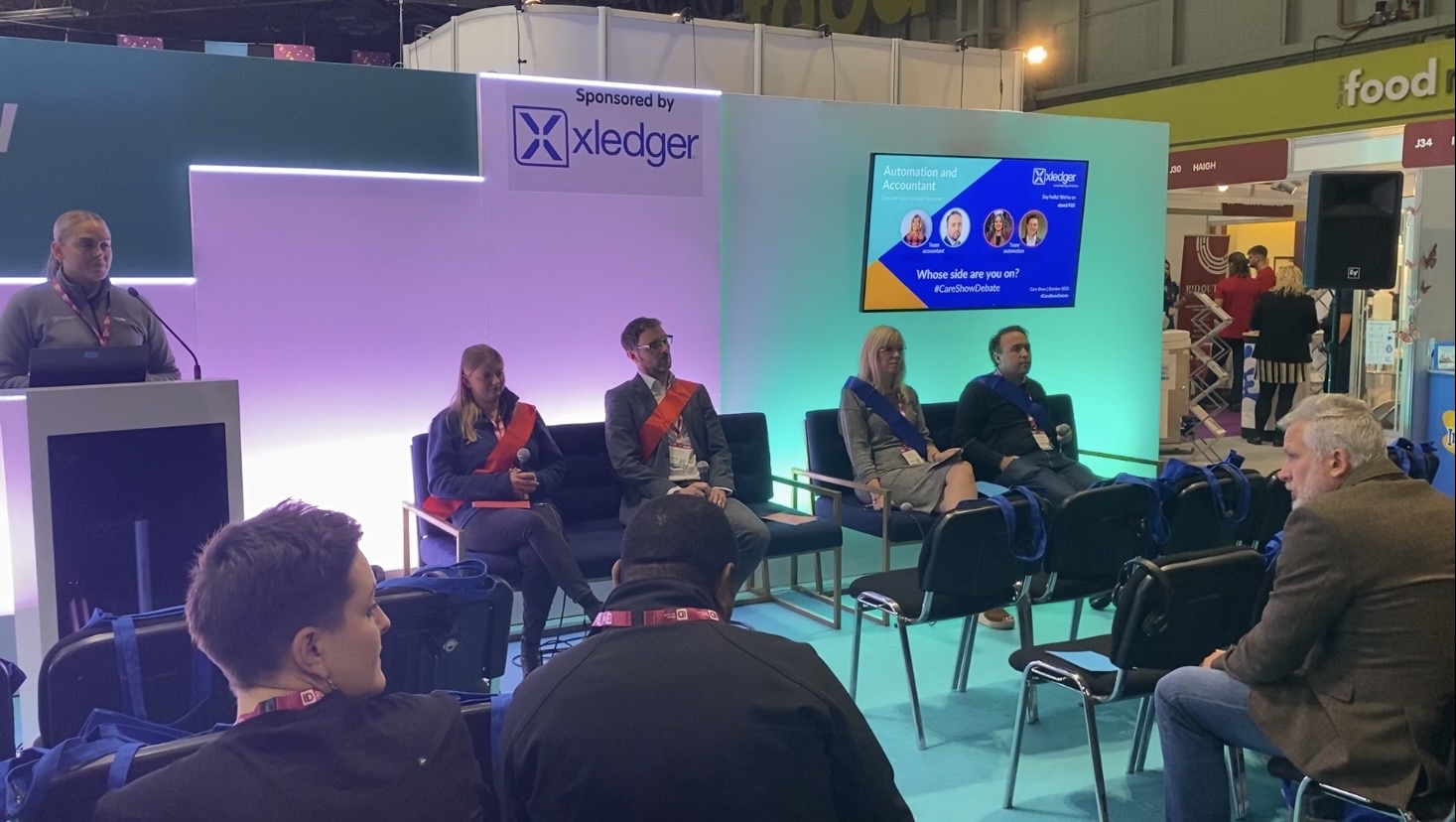Over the past few decades, the rise of robotics and AI have caused suspicion over the role that humans do, and will, play in the future. This debate saw four experts working in the care sector, discuss and argue whether automation and accountant can exist without the other.
Introducing the speakers:
Geraint Thomas, Guided Innovation. Geraint’s business supports care homes in finding software solutions that help them with efficiencies so they can focus on their business. He fully believes in automation, and that the right tools are essential.
Jennifer Sims, Xledger UK. Alongside Geraint, Jen’s expertise as a Solutions Manager and trained Accountant focuses on helping organisations automate manual financial processes using the Xledger system. This blog will also show why Jen leans towards the people side when it comes to using technology effectively.
Sam Hawker, AbleCare Homes. As Managing Director of six care homes, a family-run business, Sam knows the industry very well. Her experience of automation has been poor, and argued strongly for the need to keep people, use accountants and finance teams.
Guy Armitage-Norton, Milsted Langdon. Our final panelist, an accountant by trade, also offered up his experiences to join Sam in the debate against pure automation.
Why is the care sector becoming interested in automation?
A range of challenges have forced care homes to think differently, resulting in digital transformation and adoption of new technologies:
- Lack of funding
- Staffing crisis
- Political instability
So, is the solution purely to automate? Outlined below are some of the key arguments made, as the speakers debated whether automation alone is enough: “Automation and Accountant: can one exist without the other?”
Pro Automation
- Transparency of data empowers leaders and helps them make informed decisions.
- While the initial setup of a system or tool takes time, automation saves countless hours and days in the long-term. Tools* such as OCR, machine learning, recurring billing, and automatic bank recs can save critical time.
- The ability to see all data, drill down, interrogate and self-serve enables senior leadership teams to have confidence in numbers; something that organisations who rely on old, clunky technologies often struggle with. And of course, this lack of confidence affects everything from forecasting, to reporting, to making proactive decisions.
- Tools allow teams to spread the accountability; instead of relying on one owner, the wider team can take responsibility. This can be helpful for numerous scenarios: during holidays; working from home; and allowing auditor access for reporting.
Automation isn’t designed to remove users from a process but instead to empower them to have more time available for the real value-adding activities.
*read more about automation tools here.
Pro Accountant
- Data is only useful if you have the right people to look it at and interpret.
- Accountants support your staff with expertise and knowledge, meaning your teams are always up to date with the latest legalities surrounding tax and important business finances
- Ensures staff are held accountable. The rest of the organisation know that an external auditor is checking the legitimacy of the company’s finances, reducing risk of fraud.
- Learning about new tools will take time, and often care home managers feel they don’t have time to invest in new software.
- Human insight and multiple stakeholders are essential to navigate the future, specific to your organisation.
- Automated tech can be far too complex, and end up letting down organisations if the system doesn’t serve the needs of the organisation properly.
The need for both
As the debate came towards a close, Geraint commented: “It’s not tech that’s the problem. When used well, technology is great. We choose the product to fit the company”. It was clear that while technological advances are essential, they’re only effective when implemented well with the right teams.
In summary:
- Modern technology equips and empowers people: they can do their job in less time, giving more resource to do value-adding activities.
- The right people and training are essential: enable people to learn effectively by set up the right training environment.
- Implementing well is key: if you’re choosing a new tool, ensuring that a range of stakeholders are involved, and the system is configured to the needs of the organisation will set the organisation for success.
What’s next?
Here at Xledger, we combine the power of a best-of-breed automated software with the expertise of accountant-trained consultants to offer a solution that serves the needs and ambitions of care home businesses and supports them in facing ongoing challenges. If you’re interested in having a conversation, get in touch with us at: mail@xledger.co.uk
